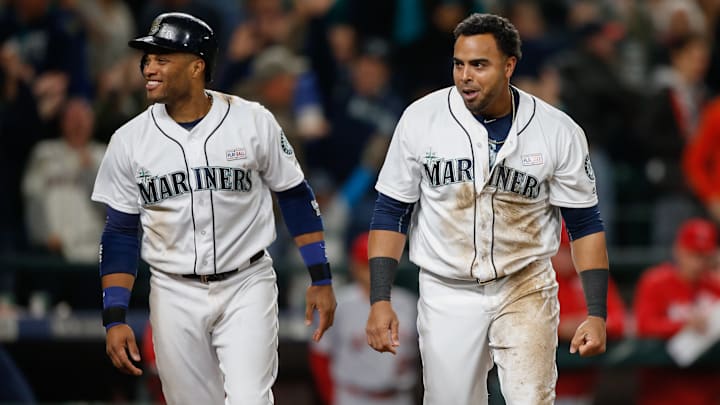In just over 12 months between December 15, 1999, and December 22, 2000, the Mariners went on a free agency tear, striking gold with John Olerud, Kazuhiro Sasaki, Stan Javier, Mark McLemore, Arthur Rhodes, Aaron Sele, Ichiro Suzuki, and Bret Boone. This group formed the core of the 2001 Mariners juggernaut, collecting four All-Star nods, an MVP and Rookie of the Year Award, two Silver Sluggers, and a Gold Glove. That season, they amassed 34.5 bWAR on a collective salary of just over $34 million.
Since then, Seattle has laid low, preferring to invest in prospects and trades instead of dabbling in the free-agent market. When the Mariners have thrown some cash around in the offseason, the results have been mixed. As the 2025 hot stove heats up, Mariners fans hope the next 20 years will be better than the last.
Seattle Mariners history in free agency: How have the last 20 years looked?
Robinson Cano signs the biggest contract, but is it the best?
Coming off his third top-five MVP finish in four seasons, Robinson Cano inked a 10-year, $240 million deal, the largest in Mariners history. From 2014-2018, Seattle saw a stellar, if not premier, version of Cano. His bat-to-ball skills and glove anchored the Mariners offensively and defensively, but his power came in fits and spurts. For example, in his first two months with the team, Cano hit just two home runs, and he finished 2014 with just 14 dingers.
Cano could probably argue that he got an unfair shake, jumping from a hitter-friendly Yankee Stadium to the pitching fortress of T-Mobile Park (then called Safeco Field). His numbers bear this interpretation out; his OPS+, which accounts for park factors, was 129 with Seattle and 126 over his nine seasons in pinstripes.
Of course, Cano is also tainted by a positive PED test and 80-game suspension in 2018. The Mariners then traded Cano and Edwin Diaz to the Mets prior to 2019, complicating an assessment of this signing. To some extent, the Mariners were wise to cut ties when they did. Cano tanked in New York, missed the entire 2021 season due to a second PED suspension, and was last seen in the Majors in 2022.
On the other hand, the Mariners paid nearly $14 million for Cano to play on other teams with the payments extending through 2023. Ultimately, Seattle got 20.6 fWAR out of the second baseman, spending $5.33 million for each win above replacement during his Mariners tenure. If you include the payouts to other teams, they spent $6 million per win. Given the going price for one win in 2014 was $7.7 million, Cano’s contract was a sweet deal despite all of the controversy.
